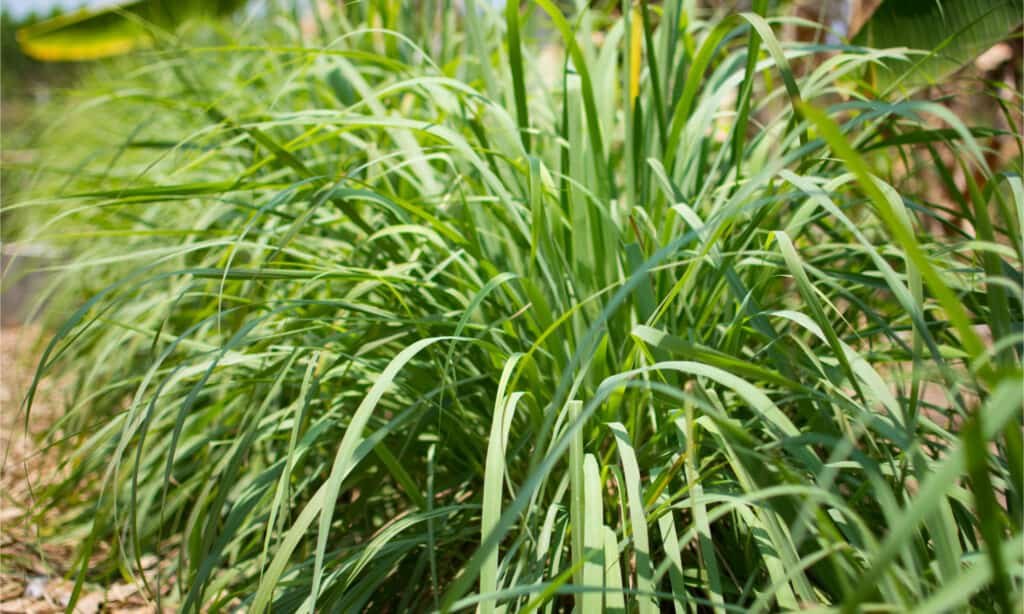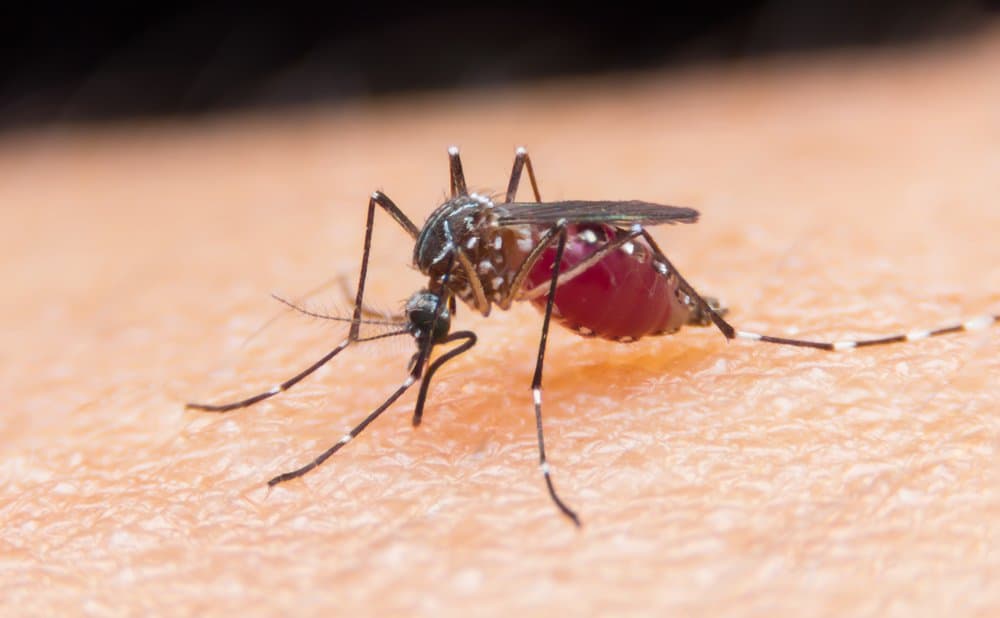Citronella is the beloved scent of bug haters! This pretty plant is known for its ability to keep annoying mosquitoes away from your BBQ, but is citronella annual or perennial? Let’s find out more about this attractive and useful plant including whether it really does keep mozzies away from your ankles.
Citronella: Annual or Perennial?
Citronella is a perennial plant. In fact, there are two types of citronella. Citronella grass (Cymbopogon nardus and Cymbopogon winterianus) and citronella geraniums (Pelargonium citrosum). Both types of plants are perennial in warm climates.

Citronella is perennial in warm climates but can be grown as an annual in cooler areas.
©Nannie_iiuu/Shutterstock.com
What’s The Difference Between Annual and Perennial?
Perennial plants grow back each year, so you don’t need to buy new ones after winter. Some are evergreen, but others lose their foliage in winter. Either way, perennial plants return the following spring.
Annuals germinate, grow leaves, flowers, set seeds, and die all within one growing season. They don’t grow back the following year.
There are also biennials! Biennial plants germinate and grow leaves in year one. In year two, they bloom and set seeds before dying off. Biennial plants have a two-year cycle.
What Is Citronella?
Citronella gets its name from the French word ‘citronelle’ which means lemongrass. It describes the delicious citrus aroma.
As we’ve discovered, there are two types of citronella. One is a grass species and one is a flowering geranium. Here’s more about them:
Citronella Grass
This is a type of perennial grass that’s related to lemongrass. It’s a member of the Cymbopogon genus and native to Australia, Africa, and Asia. Historically, the ancient Greeks and Romans used citronella grass for medicines against lice and parasites. It’s a potent antiseptic, so they were on the right track!
There are 144 species in the Cymbopogon family and the majority produce essential oils. Industrial quantities of oil is extracted from Citronella grass. Insect repellent, soaps, and household cleaning products are made from its oil. This plant can get tall, sometimes reaching six feet if it has space to spread out.
Citronella Geraniums (Mosquito plant)
Pelargonium citrosum is a perennial subshrub in the geranium family. It’s a geranium with citrus-scented leaves, so although it’s called citronella, it doesn’t actually contain any citronella oil.
It has green, lacy leaves with pink-purple flowers in spring and summer and grows to around 3-4 feet tall. It emits a lemon scent when its fuzzy foliage is crushed or rubbed. That’s why gardeners call it the mosquito plant.
The two plants smell similar but they look very different. Citronella grass is long upright grass stems that don’t flower whereas citronella geraniums are short, lacy leaved and pink flowered.
Image need of citronella geranium
Caption Citronella geraniums have pretty pink flowers and citrus scented lacy foliage.
Does Citronella Grow Back Each Year?
Yes citronella plants (both grass and geraniums) are perennial so they grow back each year. Both species need warm temperatures to thrive. In cold yards, they may die over winter. This leads some gardeners to grow annual citronella. Others dig up their citronella and bring it indoors for the cold season.
Can Citronella Survive Winter?
In warm zones citronella grass and citronella geraniums survive winters. Anything below United States zones 10-12 is usually too cold for citronella grass. The geranium variety is a little hardier. In the United States it’ll cope with Zone 9b to 11. Frost will kill citronella.
However, it does love growing indoors. It’s possible to dig up citronella, put it in a container of compost and keep it in a warm, light place until spring rolls around.
Does Citronella Repel Mosquitoes?
Citronella repels mosquitoes. It’s a very effective natural insect repellent. In fact, most citrus scents are disliked by insects and mammals!
Citronella works best when it’s extracted from citronella grass and distilled into oil. Just growing citronella grass or citronella geraniums in your garden won’t keep many mosquitoes at bay. Regularly crushing the leaves may prevent a few, but on the whole, citronella is grown for its ornamental properties.

Citronella plants aren’t enough to keep mosquitoes out of the yard.
©AUUSanAKUL/Shutterstock.com
How To Use Citronella To Keep Bugs Away
Experts say that, unfortunately, just growing citronella doesn’t work very well as a mosquito repellent. The best way to use citronella is via essential oil, candles, and natural insect sprays or lotions. The amount of citronella needed to prevent mosquito bites is much higher than the amount emitted when its leaves are crushed. This article from the National Library of Medicine suggests it has no more effect than water!
However, anecdotal evidence from gardeners suggests the opposite. If you want to keep mosquitoes from your garden it can’t hurt to give citronella plants a go! At the very least they smell divine and brighten up a summer bedding scheme.
Do You Cut Back Citronella Plants?
To keep citronella geraniums bushy it’s best to pinch out the top leaves. This stimulates growth at the base and creates a healthier, bushier plant. Dry the pinched out sections in a cool, dark place and you’ll have citrus-scented pot pourii for free!
Cut them back to encourage a second flush of flowers. Be sure to feed citronella with high-quality fertilizer after trimming them so they have enough nutrients to sustain another set of blooms. This is particularly important for citronella in pots and containers.
Is Citronella Poisonous To Pets?
Ingesting citronella is not good for pets. Even small quantities of citronella causes stomach upsets and adverse reactions such as dermatitis and vomiting.
Many cats and dogs (and other animals like rats) don’t like the scent of citronella and stay away, but it’s best to be safe and make sure they can’t access any part of the plant.
Does Citronella Repel Spiders?
It’s not just mosquitoes and biting insects that hate citronella, spiders do too! If you’re an arachnophobe, planting citronella in the yard and burning candles or diffusers will help keep spiders away.
In Warm Climates Citronella Plants are Perennial
Let’s recap on our question is citronella annual or perennial?
Citronella is perennial in its native warm and tropical environment, but frost and cold weather will kill it. Keen citronella fans living in cold areas can grow annual citronella or bring it inside for the winter. Houseplant citronella is a great natural way to fill a home with clean, fresh scent – and it may keep the spiders out too!
Up Next
The photo featured at the top of this post is © rawf8/Shutterstock.com
Thank you for reading! Have some feedback for us? Contact the AZ Animals editorial team.






